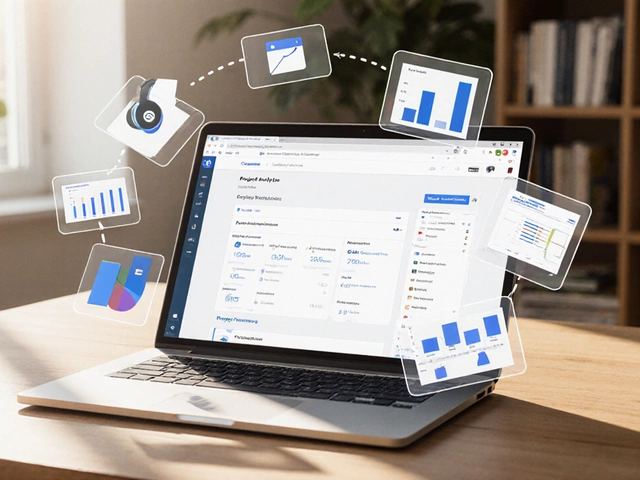Workforce Skills: Your Path to a Ready‑to‑Work Career
When you start thinking about workforce skills, the set of abilities that make you instantly valuable to employers. Also known as job‑ready competencies, workforce skills combine technical know‑how with real‑world problem solving. Closely linked are vocational training, hands‑on programs that teach specific trades, skill development, continuous learning that sharpens both hard and soft abilities, and career development, the strategic planning that guides your professional growth. Together they form the backbone of a modern, employable workforce.
Why These Elements Matter Together
Think of workforce skills as the umbrella; under it sit vocational training, skill development, and career development. Workforce skills encompass vocational training because you can’t claim a skill without a structured way to learn it. Skill development requires a steady supply of practice opportunities, which vocational programs provide. Career development influences workforce skills by identifying which abilities are in demand, steering learners toward the most relevant training. This three‑way relationship creates a feedback loop: as industries evolve, training updates, workers upskill, and careers advance.
One common mistake is treating these pieces as isolated. When a locksmith finishes a short certificate but never practices, the skill fades. When a digital marketer learns the latest tools but lacks a career plan, the effort stalls. The sweet spot is a clear path: start with a trade‑focused certificate, keep sharpening the skill set, and map each upgrade to a career milestone. That’s why many of the articles below stress hands‑on experience, real‑world pay scales, and actionable steps.
Our collection covers a wide range of topics that illustrate these ideas. You’ll read why certain online platforms are losing traction in 2025, what makes the best Job Corps centers rank high, and how India’s trade history fuels today’s export power. There are deep dives into specific trades—locksmithing, plumbing, and fast‑track programs—plus gender‑focused guides for women entering high‑paying trades. Each piece shows how a solid foundation in workforce skills unlocks higher earnings, job stability, and personal confidence.
Take the example of “Fastest Trades to Learn.” It breaks down short‑term certification routes, showing how a few months of focused vocational training can open doors to well‑paid roles. Pair that with “Best Trades for Women,” and you see how career development advice tailors the same foundational skills to different audiences. Together they prove that the same core workforce skills can be channeled into multiple career trajectories, depending on personal goals and market demand.
Another thread runs through posts about salary insights—digital marketing pay, locksmith earnings, plumber stress factors. These articles connect back to skill development: higher pay often follows advanced certifications or niche specializations. The data underscores a simple truth: when you invest in the right vocational program and keep learning, your workforce skill portfolio becomes more valuable, and employers notice.
Beyond individual trades, the tag also captures broader strategic concepts like “Understanding the Four Key Categories of Career Development.” That guide outlines self‑assessment, skill mapping, networking, and continuous learning—each a pillar that supports workforce skills. By reading it, you’ll learn how to set realistic targets, choose the right certification, and measure progress over time.
In short, the articles below are a toolbox. Whether you’re curious about the decline of a major e‑learning platform, seeking the top Job Corps center, or looking for the exact cost of an English speaking course in Delhi, each piece adds a layer to your overall skill set. They’re organized to let you jump straight to the trade you care about, then explore related salary data, certification details, and career tips.
Now that you understand how workforce skills, vocational training, skill development, and career development intertwine, scroll down to explore the curated articles. You’ll find practical advice, real‑world numbers, and clear steps to turn your abilities into a thriving, future‑proof career.

Vocational Training Benefits: How Skill-Based Learning Transforms Careers
Unlock the life-changing benefits of vocational training, from hands-on skills to higher job security. Explore how it opens new career doors and fuels growth.
View More



